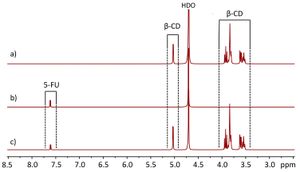Błażej Spychalski, the former spokesperson and social advisor to Polish President Andrzej Duda, faces serious legal troubles after being arrested early Thursday morning by the Central Anti-Corruption Bureau (CBA). The investigation centers around alleged corruption and fraud linked to Collegium Humanum, now known as the University of Business and Applied Sciences Varsovia.
Spychalski has been charged alongside his wife, Sandra S., as part of the probe investigating irregularities at the private university established in 2018. According to the National Public Prosecutor's Office, both were implicated in wrongdoing related to the issuance of fake MBA diplomas, as the institution is accused of lacking the authority to confer such degrees.
President Duda has made it clear where he stands, declaring, "I turned to the head of my office to not engage Błażej Spychalski in any actions... until the prosecution shows what decisions it intends to make." His comments reflect the seriousness with which the administration views the situation, and the decision to suspend Spychalski’s engagement with official duties indicates the gravity of the charges.
The circumstances surrounding the arrest have drawn considerable attention. According to sources close to the Presidential Palace, six agents from the CBA arrived at Spychalski's home at 6 AM, carrying search warrants and immediately securing his phone. An anonymous source remarked, "CBA agents arrived at Spychalski's house at 6 am and secured the phone immediately." The agency's swift actions suggest they are taking the allegations seriously.
Spychalski’s career has been closely intertwined with the Duda administration, having served as secretary of state and latterly as Duda's spokesman from 2018 to 2021, before taking on roles with several state-controlled entities. Following his departure from the Chancellery, Spychalski worked as deputy CEO for the gas operator Gaz-System and served as an advisor to PKN Orlen, Poland's largest fuel and energy company.
At the heart of the investigation are allegations surrounding payments made to the former rector of Collegium Humanum, Paweł Cz. These payments allegedly served as benefits or inducements for improperly issued diplomas. The prosecutor outlined, "Błażej Spychalski was charged with providing benefits to the former rector of Collegium Humanum... including cash payments." This has sent ripples through Polish political circles, raising questions about the integrity of several officials connected with the university.
Reaction from Spychalski has been forthright; he has publicly denied the charges, stating, "I have not confessed to the charges. I find them absurd and without basis in reality." He expressed his frustrations at how the situation has unfolded, claiming it feels like he is being made to look like a criminal. This sentiment resonates with many observers who see the interplay of politics and law enforcement at play.
The arrest and subsequent charges have shocked the Polish political establishment. President Duda underscored the unexpected nature of the events, admitting, "The situation was surprising to us," and noting the importance of allowing due process to play out. His previous statements reiterate the significance of presuming innocence until proven guilty, especially for individuals connected to his administration.
Now, with Spychalski suspended from all duties pending the prosecution's next steps, the effects of this case are likely to influence the broader political arena. Allegations surrounding Collegium Humanum have previously targeted other notable figures, including members of the Law and Justice party, indicating the depth of potential corruption within this educational institution.
The fallout from this scandal could bear significant political ramifications for not just Spychalski, but potentially for the credibility of the Duda administration itself. The perception of incompetence or moral failing could resonate particularly as Poland heads toward elections.
At the moment, the court proceedings and more details from the prosecution are awaited anxiously by those inside and outside the political fray. The affair serves as both a reminder of the regulatory oversight necessary in the education sector and the delicate balance of political loyalty and legal accountability.
With the suspension of Spychalski as part of the political optics and legal process, the repercussions of his case will likely engage many citizens who have followed the recent controversies stemming from the operations of Collegium Humanum.



